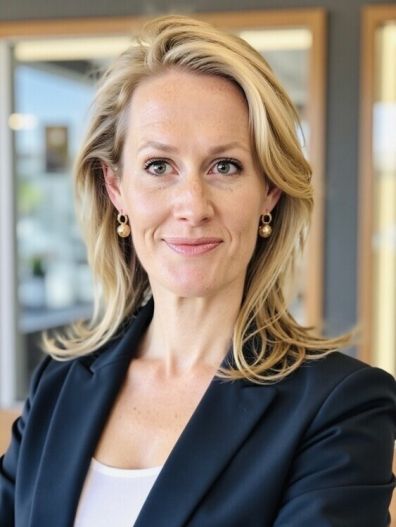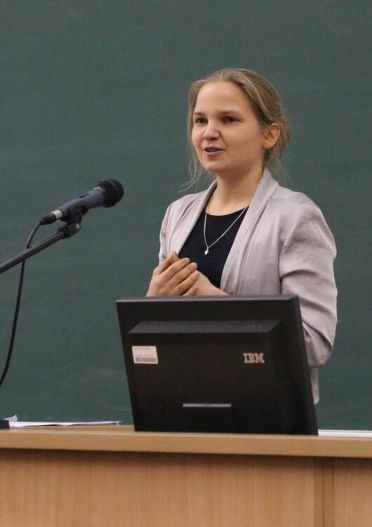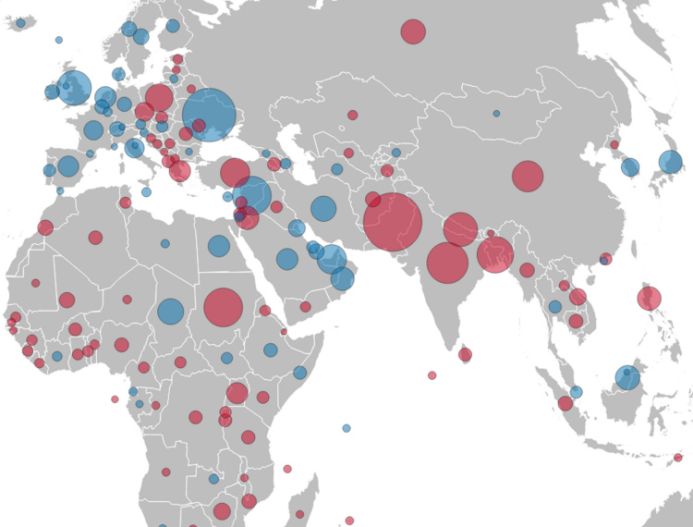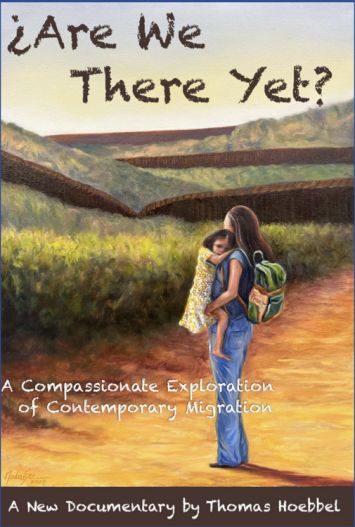Einaudi Center for International Studies
The Risk of Nuclear War Is Rising Again. We Need a New Movement for Global Peace

David Cortright, PACS
David Cortright, a visiting scholar at Cornell University’s Reppy Institute for Peace and Conflict Studies, calls for new grassroots action to reduce nuclear risk.
Additional Information
Globalization and Technology Infecting Domestic Politics

Eswar Prasad, SAP
Eswar Prasad, Cornell University economics professor, analyzes the impact of globalization and technology on domestic politics.
Additional Information
Civilian Self-Protection in an Era of Escalating Harm and Uncertainty

March 12, 2026
12:00 pm
Uris Hall, G08
Civilians have long developed strategies to protect themselves and others in the face of violence. Over the past two decades, research on civilian self-protection (CSP) has documented these practices across diverse conflict settings, challenging the assumption that protection is primarily delivered by states or international actors. Today, this insight has taken on renewed urgency. Civilian casualties, displacement, and violations of international humanitarian law have surged, while international assistance has become increasingly fragmented and unreliable. In this context, civilian self-protection is not peripheral but central to how civilians navigate insecurity and survive.
In this talk, I examine what the current moment reveals about CSP and its limits. Drawing on my recent work on civilian protective agency, the risks of international engagement, and the role of digital technologies, I synthesize key insights from the CSP literature and assess why international efforts to recognize or support these practices—often framed through the language of localization—have remained partial, contested, and fraught with risk. I then analyze how information and communication technologies are reshaping civilian agency by amplifying coordination and visibility while simultaneously producing new forms of exposure and vulnerability. Taken together, the talk asks how civilian self-protection reshapes conflict dynamics, redistributes risk, and complicates prevailing assumptions about responsibility, authority, and protection itself.
About the speaker
Emily Paddon Rhoads is Associate Professor of Political Science at Swarthmore College, where she teaches courses in international relations, comparative politics, and peace and conflict studies. Her research examines how protection, legitimacy, and trust are constructed when formal institutions are strained or contested, and how communities, local and global, organize safety and cooperation under conditions of violence, crisis, and political fragmentation.
Host
The Reppy Institute for Peace and Conflict Studies, part of the Einaudi Center for International Studies
Co-sponsor
The Gender and Security Sector Lab
Additional Information
Program
Einaudi Center for International Studies
Reppy Institute for Peace and Conflict Studies
Programmer as Translator, AI as Poet

March 9, 2026
4:30 pm
Uris Hall, G-08
A workshop with Joanna Krenz to discuss two papers she authored:
Programmer as Translator: The LHC of Chinese Artificial Intelligence Poetry
Virtual Conciliation: (Un-)Coding the Split between Tradition and Modernity in Chinese Artificial Intelligence Poetry
The workshop will focus on artificial intelligence (AI) poetry as a form of translation, understood here as the translation of a particular paradigm of poeticity operative within Chinese society into virtual reality. We will address three dimensions of this process—linguistic, human, and cultural—while identifying moments of unavoidable failure and examining their artistic and social consequences. The discussion will be preceded by a general introduction to the history and context of AI poetry in China, based on my research to date.
Joanna Krenz is Assistant Professor of Modern Chinese Language and Literature at the Institute of Oriental Studies, Adam Mickiewicz University in Poznań, Poland. She translates and publishes widely on Chinese poetry and prose. She is the author of In Search of Singularity: Poetry from Poland and China Since 1989 (Brill, 2022). She is currently working on the project The World Re-Versed: New Phenomena in Chinese Poetry as a Challenge and Inspiration to Literary Studies.
About the East Asia Program
As Cornell’s hub for research, teaching, and engagement with East Asia, the East Asia Program (EAP) is a forum for the interdisciplinary study of historical and contemporary East Asia. Part of the Mario Einaudi Center for International Studies, the program draws its membership of over 45 core faculty and numerous affiliated faculty, graduate, and undergraduate students from across Cornell's colleges and schools.
Additional Information
Program
Einaudi Center for International Studies
East Asia Program
India’s Economy Is Still in Search of a Plan

Rohit Lamba, SAP
Rohit Lamba writes: “Government deserves credit for aggressively pursuing FTAs. But they cannot be a substitute for structural reforms, which cannot be delivered in ‘campaign mode’.”
Additional Information
Mapping Migration Data with GIS: A Hands-On Workshop

February 25, 2026
12:00 pm
Mann Library, Mann 103, Stone Computer Classroom
What can maps reveal about movement, displacement, and mobility? What are applications and limits of migration data? And how can we use digital tools to map migration?
This hands-on workshop introduces participants to using Geographic Information Systems (GIS) to visualize and analyze human migration data. We will begin with an overview of key migration data sources and discuss why mapping is a tool for understanding migration patterns, drivers, and impacts. Participants will then learn how to use GIS tools to create visualizations, explore spatial relationships, and conduct basic analyses using real migration datasets. We will conclude with a discussion of how mapping techniques can support your own research or professional work, along with the possibilities and limitations of using GIS to study migration.
Speakers
Keith Jenkins, GIS & Geospatial Applications Librarian
John Zinda, Associate Professor, Global Development
This event is hosted by the Migrations Program's graduate fellows, part of the Einaudi Center for International Studies. For questions, please contact Kate Foster (kef72@cornell.edu) and Nicole Venker (ntt22@cornell.edu).
Additional Information
Program
Einaudi Center for International Studies
Migrations Program
Southeast Asia Program
¿Are We There Yet?: A Compassionate Exploration of Contemporary Migration

March 4, 2026
6:00 pm
Willard Straight Theatre
Asylum seekers and refugees from many areas of the world and specifically from Central and South America are desperately trying to immigrate to the United States. These migrants are traveling through dangerous areas and difficult terrain to reach the southern border of the US with the hopes of making a better life for themselves and their families.
When they arrive at the southern border they face danger, uncertainty, and a very large wall. Even after treacherous journeys to reach the Mexico/U.S. border, there are countless other, possibly insurmountable, obstacles. If they do reach the U.S. to seek asylum, they face arrest, detention, and possibly even deportation back to Mexico or the country from which they tried so hard to escape.
This debut documentary feature from local filmmaker Thomas Hoebbel explores contemporary challenges to immigration in the United States in 2024.documents their stories and the challenges they face on their journeys and explore possible remedies to what has become a broken system of immigration in the United States.
Filmmaker Thomas Hoebbel will join for a conversation after the film.
Free admission! Reserve your free ticket through Cornell Cinema. Sponsored by the Migrations Program at the Einaudi Center for International Studies.
Additional Information
Program
Einaudi Center for International Studies
Migrations Program
Trump Announces Initial Trade Deal with India, Cutting Tariffs to 18%

Eswar Prasad, SAP
Eswar Prasad, professor of trade policy, provides analysis on the consequences of the India-U.S. trade deal.
Additional Information
World in Focus: Immigration Enforcement as Political Punishment

February 10, 2026
4:00 pm
Uris Hall, G08
Join Einaudi Center experts for World in Focus Talks on global events in the news and on your mind. Our faculty's research and policy insights put the world in focus.
This year we’re hosting informal campus discussions on many Tuesday afternoons. This week’s topic:
In the United States and around the world, strict immigration enforcement and violence are being wielded as political tools. Recent U.S. actions include surveillance of communities, indiscriminate detainment, and violence against protestors. Despite being framed as necessary for the safety of citizens, these tactics are rooted in histories of slavery, the prison industrial complex, and xenophobia.
Does this type of enforcement infringe on rights? How can we understand current events through the lens of global and historical contexts? Do present-day immigration policies make communities safer?
***
Featured Faculty
Shannon Gleeson (Migrations) | Industrial and Labor RelationsTristan Ivory (EAP, IAD) | International and Comparative LaborJaclyn Kelley-Widmer | LawNatasha Raheja (SAP) | AnthropologyIan Kysel | Law
***
Conversations Matter at Einaudi
This conversation is hosted by the Mario Einaudi Center for International Studies and its regional and thematic programs. Find out what's in store for students at Einaudi!
Additional Information
Program
Einaudi Center for International Studies
Reppy Institute for Peace and Conflict Studies
East Asia Program
Southeast Asia Program
Latin American and Caribbean Studies
Institute for African Development
Institute for European Studies
South Asia Program
Migrations Program
Southwest Asia and North Africa Program
An American Family Caught in the Immigration Crackdown

Marielena Hincapié, Migrations
Marielena Hincapié, an immigration scholar at Cornell University, explains the need for federal immigration reform to keep mixed-status families like the Della Valles together.
